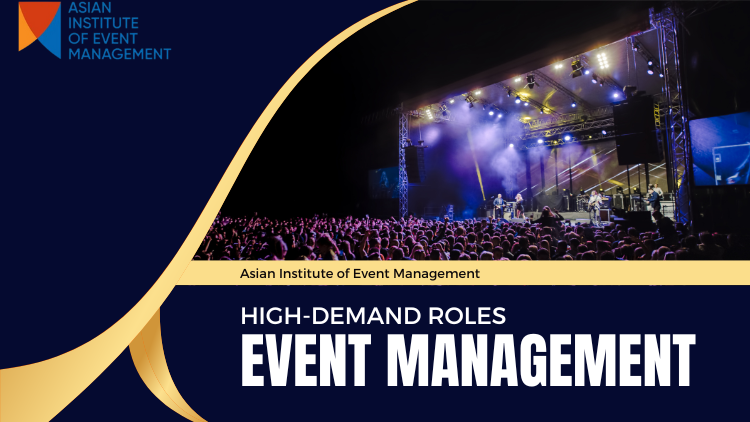
7 Networking Tactics for Event Management Students
May 10, 2024
A strong network can open a whole new world of career opportunities. This is especially true in dynamic and relation-driven industries like event management.
Cultivating meaningful industry relationships early on can set you apart from other aspiring professionals.
As event management students looking to get ahead, here’s a practical breakdown of seven networking tips to help you get a head start in your career
1. Connect with Seniors
Leverage every chance to engage with experienced seniors — whether at institute-organized events or through collaborative projects.
As veterans of the same academic and early career challenges you currently face, seniors can provide invaluable first-hand advice and industry knowledge.
At Asian Institute of Event Management, connecting with seniors is highly encouraged through various structured programs promoting cross-learning and professional growth.
2. Leverage Alum Networks
Alum networks provide an important gateway to career opportunities and industry mentors.
Connect with alum groups on LinkedIn or attend local meetups to access this support system.
Asian Institute of Event Management facilitates frequent touchpoints between current event management students and now successful alums across channels, enabling access to insider resources and job leads before they become publicly listed.
3. Participate in Industry Events
Industry events provide unparalleled access to key players and potential employers under one roof.
Conferences, workshops, and webinars offer exposure to emerging industry trends and best practices, while volunteering provides hands-on learning of event operations.
Be proactive in registering for relevant events, showing up with an open-minded attitude, and leveraging conversations.
The connections sparked here can truly advance your career over time.
4. Use Social Media
Platforms like LinkedIn and Twitter enable direct connections with industry influencers and brands.
Follow thought leaders in your field, join engaged professional groups, and actively share your own emerging insights to establish a distinctive personal brand and expand your visibility.
Savvy use of social channels provides deeper access to the pulse of the industry.
5. Engage in Class Projects
Group projects build critical skills in team collaboration while fostering peer relationships.
Step up, take responsibility, communicate effectively, and lead by example.
Classmates can become excellent professional connections over time, so be sure to showcase your abilities.
6. Seek Internships and Volunteering
Internships and volunteer event gigs provide the hands-on experiences employers seek in new hires.
Apply your developing skills, gain practical insights into event operations, and meet and network with industry pros in real-world settings.
Asian Institute of Event Management provides access to such openings through its tie-ups, enabling the professional growth that builds careers over time.
7. Join Professional Associations
Industry associations provide access to trending resources, networking events, and mentorship programs.
Becoming a member expands your professional community and accelerates growth through information and opportunities.
Tapping into these ecosystems yields the connections to advance faster.
So, find these associations, join them, and be an active participant.
Final Thoughts
Remember, the event management industry \rewards proactive networking and relationship-building above all else.
Use these tactics consistently to take your career forward right from your student days.
Asian Institute of Event Management offers the ideal launchpad. Connect with your teachers and experts for more information.
RECENT POSTS
-

Navigating the Curriculum: Key Modules and Skills in an 11-Month Event Management Diploma
March 21, 2025
-

Maximizing Career Opportunities with an 11-Month Diploma in Event Management
February 20, 2025
-

Why Kolkata is Becoming India’s Event Management Hub
February 17, 2025
-

Top 5 High-Demand Roles in Event Management
February 12, 2025
-

What Elements Should Be Considered When Selecting the Best Event Management Institute?
January 6, 2025